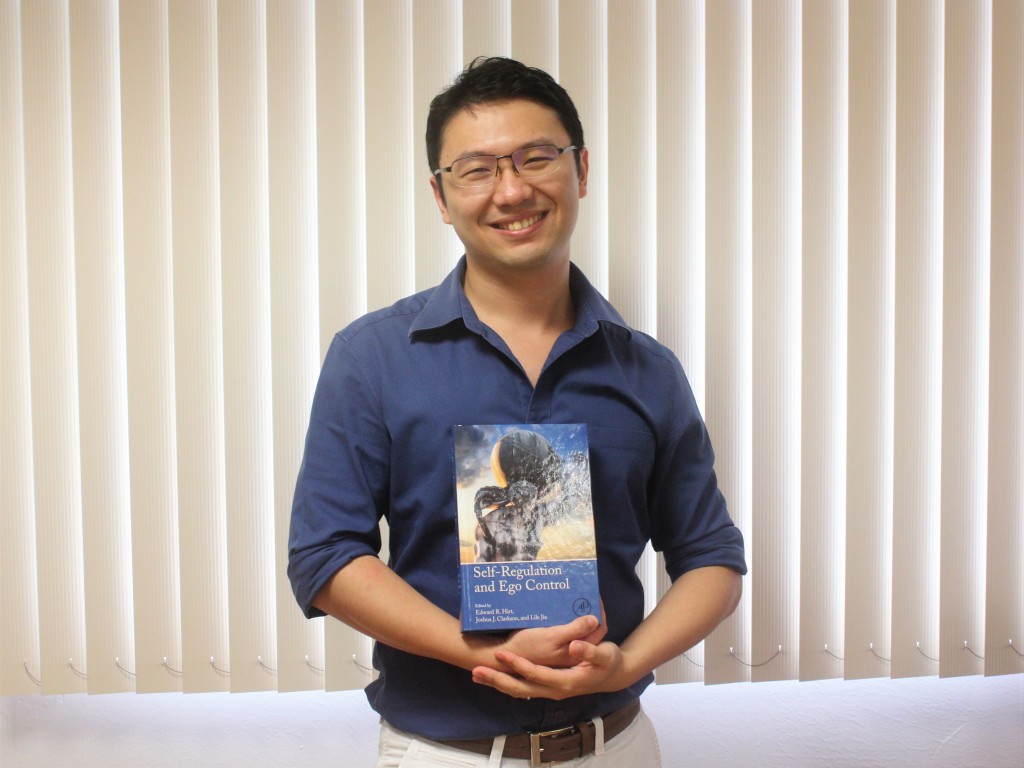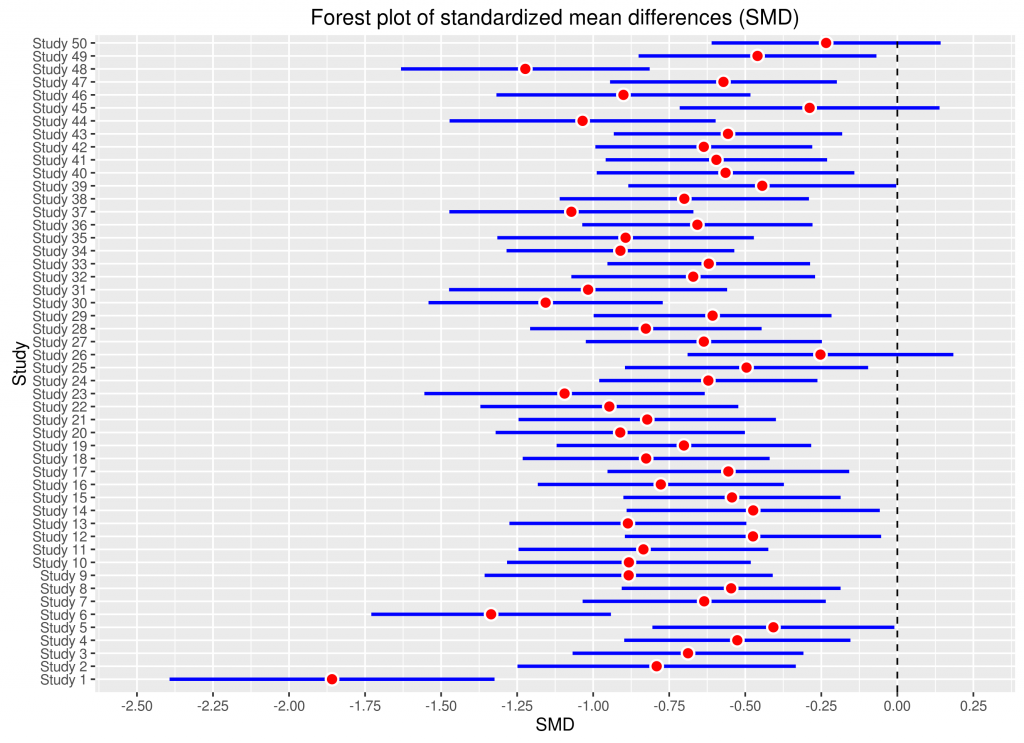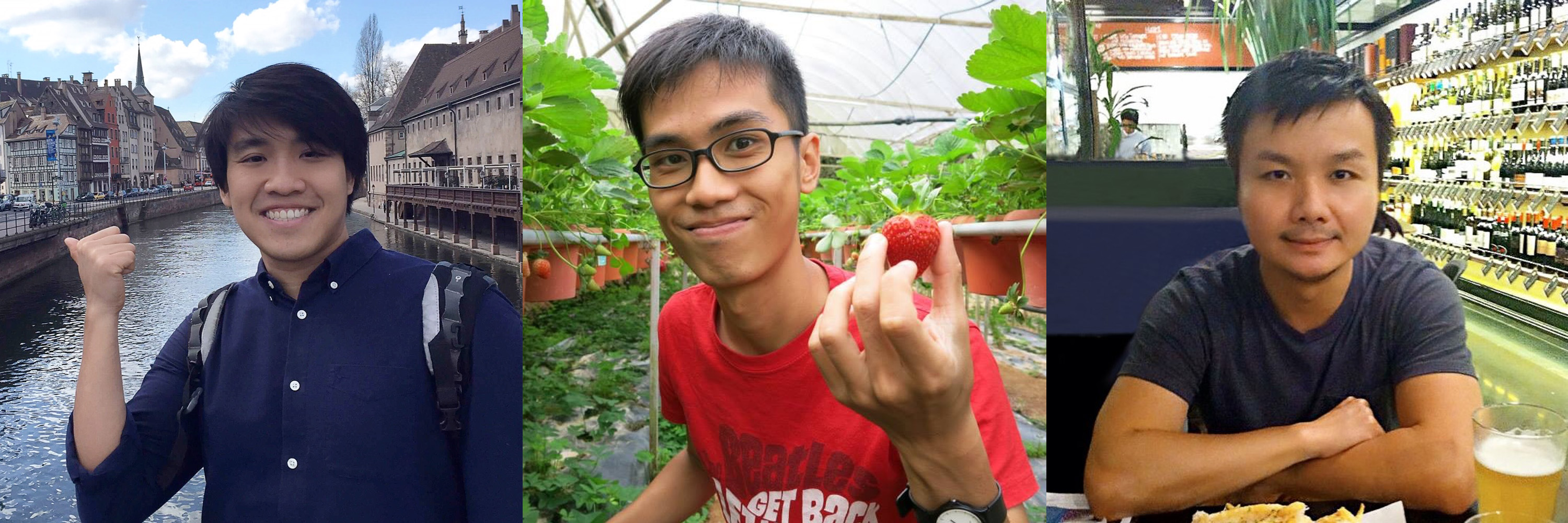We are pleased to announce that four of our graduate students have recently won the Graduate Students’ Teaching Award (GSTA) for Semester 2 AY2015/2016!
![Eri Sasaki]()
![Elizabeth Jane Teh Ning Yen]()
![Leong Li Fang Ruth]()
![Leung Chi Ching]()
Eri will be placed on the Honor Roll as this is the third time she has won the GSTA. Congratulations!
Since Elizabeth, Ruth, and Chi Ching are first-time winners, we also took the opportunity to find out what makes them such effective teachers.
Elizabeth
1. What inspires you to teach?
I have had some very good teachers and mentors in my life, who showed me different ways to learn and reason about things. These skills have shaped my outlook on life. So, I hope to guide others on their learning journey, especially during the important undergraduate years. Sometimes, people think of university education as the ‘final stage’ after all the years of schooling and exams. But I think it is really a new stage, where students develop new ways of looking at information, discussing and testing ideas, and hopefully reasoning critically before forming conclusions. In other words, this is an important formative period for young adults, and I’d like to them help in that journey in some small, useful way.
2. What are some of the major challenges you face as a teacher?
The main challenge is how to reach out to students in every tutorial. In every class of students, there are diverse interests, abilities and personalities. So, for any given tutorial, the topic may be more interesting to some students than to others, some students will learn faster than others, and some will be more participative than others. I sometimes find it challenging to reach out to every student, help him/her participate and learn, in every tutorial.
The other main challenge is time management – balancing our own commitments with tutorial prep, marking, etc. For this, it really helps to have a collaborative team of TAs in the same module. I’ve been blessed with good teammates in all my modules so far!
3. Why do you think you are an effective teacher?
Well, that’s a tough question! I think some key ingredients for effective teaching as a TA are good communication skills, a real interest in the subject, and a sincere desire to share knowledge and motivate students’ learning process. Since the main contents are already covered in lectures, I think the TA’s role is largely to make learning a little bit easier for students by sharing what we know through activities and clear examples, creating a ‘safe’ space to discuss their thoughts and doubts, and thereby motivating their interest to extend the knowledge themselves. So those are the things I strive to achieve in my classes.
Ruth
1. What inspires you to teach?
I am inspired to teach for two reasons. Firstly, it is the hope of every university student that they discover an area of study that they will excel at and find joy in pursuing for years to come. It is both a fun task and a privilege to assist in this venture. The second reason I love to teach is because I have been personally blessed with excellent teachers, and have had first-hand experience of the impact that good teaching brings.
2. What are some of the major challenges you face as a teacher?
A major challenge would be thinking about how to explain difficult concepts in a clear way, or to deliver the lesson in a way that is memorable. Students get quite tired out by all the lectures and tutorials they have going on, and I’d hope for them not only to learn from my tutorial but also to enjoy it.
3. Why do you think you are an effective teacher?
I think being an undergraduate here helps a lot. I’m able to understand what concepts students may find hard, and the aspects of school they find challenging. Being genuine is important too. Students are more comfortable about asking questions when a tutor is approachable!
Chi Ching
1. What inspires you to teach?
My own teachers! As a student, I really enjoyed lessons where the teacher can bring theories to life and challenge you to think. And there is always a lecture or a tutorial where you will always remember because the professor did something to show you how psychology theories come to life and that is how I want my classes to be like. Psychology, after all, is the study of human behaviour!
2. What are some of the major challenges you face as a teacher?
Challenging students to talk and ask questions! Don’t be afraid to give a comment or ask questions, I have asked my fair share of stupid questions but to me, it is better to ask a silly question than never knowing the answer if it really matters to you. So be thick-skinned and ask away!
3. Why do you think you are an effective teacher?
I would like to believe that students like my enthusiasm! =) Also, I make sure I myself am very clear of the concepts that I am teaching and if possible to always use illustrations or examples to bring across a point. I try not to give all the answers and to bounce questions around the class, after all, we are here to learn from each other!


 Dr. Ding Xiao Pan joined our department in October 2016. She obtained her Ph.D. in Developmental Psychology from East China Normal University, China. Prior to starting her position with NUS, she was a postdoc at University of Toronto, Canada, and an associate professor at Zhejiang Normal University, China.
Dr. Ding Xiao Pan joined our department in October 2016. She obtained her Ph.D. in Developmental Psychology from East China Normal University, China. Prior to starting her position with NUS, she was a postdoc at University of Toronto, Canada, and an associate professor at Zhejiang Normal University, China.












